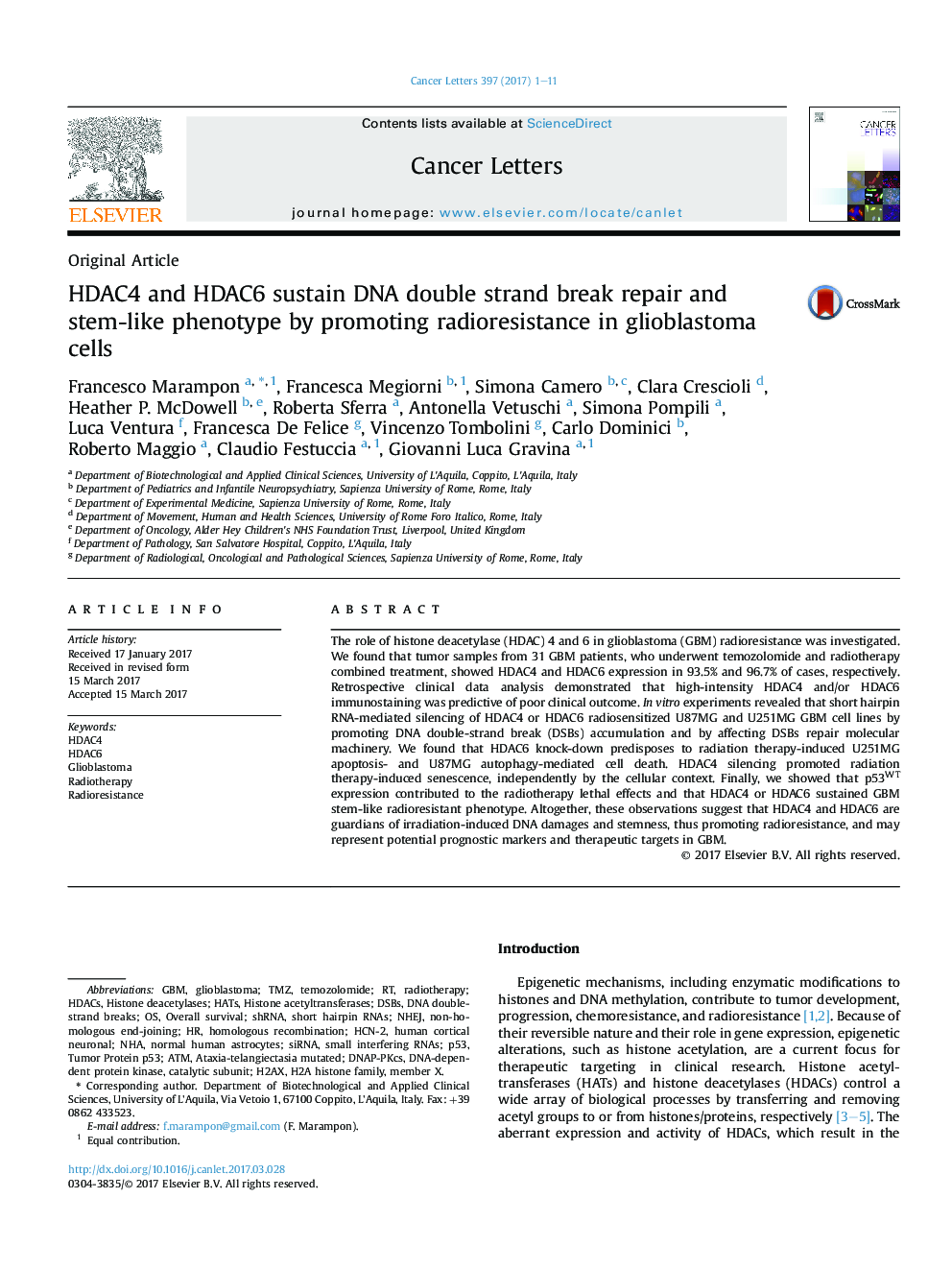| Article ID | Journal | Published Year | Pages | File Type |
|---|---|---|---|---|
| 5525333 | Cancer Letters | 2017 | 11 Pages |
â¢HDAC4 and HDAC6 sustain DNA double strand break repair and stem-like phenotype thus promoting radioresistance in glioblastoma cells.â¢HDAC4 and HDAC6 expression in glioblastoma patients negatively correlates with overall survival rates after radiation treatment.â¢HDAC4 and HDAC6 targeting radiosensitizes p53 wild type or mutant glioblastoma cell lines.â¢In glioblastoma cells, HDAC6 prevents radiation-induced apoptosis- or autophagy-cell death dependently by the 53 status.â¢In glioblastoma cells, HDAC4 prevents radiation-induced senescence-cell death in a p53 wild type dependent manner
The role of histone deacetylase (HDAC) 4 and 6 in glioblastoma (GBM) radioresistance was investigated. We found that tumor samples from 31 GBM patients, who underwent temozolomide and radiotherapy combined treatment, showed HDAC4 and HDAC6 expression in 93.5% and 96.7% of cases, respectively. Retrospective clinical data analysis demonstrated that high-intensity HDAC4 and/or HDAC6 immunostaining was predictive of poor clinical outcome. In vitro experiments revealed that short hairpin RNA-mediated silencing of HDAC4 or HDAC6 radiosensitized U87MG and U251MG GBM cell lines by promoting DNA double-strand break (DSBs) accumulation and by affecting DSBs repair molecular machinery. We found that HDAC6 knock-down predisposes to radiation therapy-induced U251MG apoptosis- and U87MG autophagy-mediated cell death. HDAC4 silencing promoted radiation therapy-induced senescence, independently by the cellular context. Finally, we showed that p53WT expression contributed to the radiotherapy lethal effects and that HDAC4 or HDAC6 sustained GBM stem-like radioresistant phenotype. Altogether, these observations suggest that HDAC4 and HDAC6 are guardians of irradiation-induced DNA damages and stemness, thus promoting radioresistance, and may represent potential prognostic markers and therapeutic targets in GBM.
